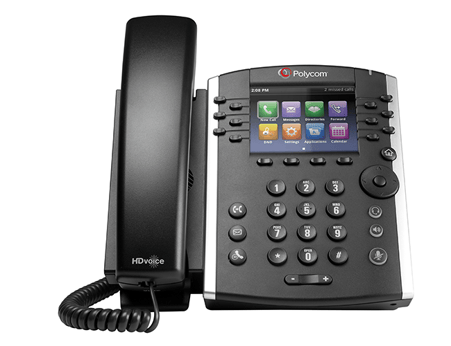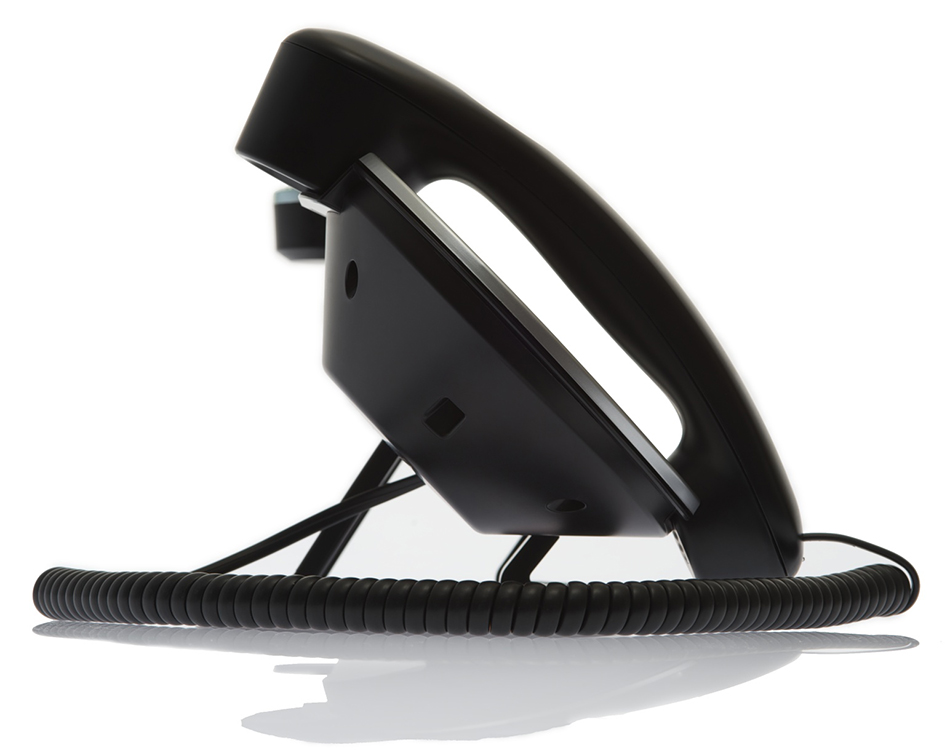How much does a VoIP Phone System Cost a Business?
When it comes to any business decision, everyone wants to make smart investments, stay under budget, and get the most bang for your buck. Those same thought concepts does apply to anyone wondering how much a VoIP phone system costs.
Over the course of the last 10 years meeting with NJ business owners and managers, I can’t even count how many times people have cut right to the chase and ask me the critical question “how much will this phone system cost?”
It’s a fantastic question, and one that has some key variables. In order to give you the best, most sensible answer, I’m going to break out the top 8 variables that impact the cost of a VoIP phone system for small businesses.
How much will a VoIP phone system cost a small business?
The quick answer is it depends...
The investment for a small business will be anywhere $25 to $75 per user per month. I recognize this is a huge gap in price, so let’s dive into the eight reasons and illustrate why it can vary so much. On average, $40 per user per month is typically a realistic estimate for most businesses. This $40/month per user includes the monthly phone lines, new phone hardware and professional services for on-site installation, end-user training and on-going support.
So take the # of phones you have and multiply that number x $40/mo and you will get a VERY quick monthly estimate you can use as a foundation.

1) How many physical phone handsets do you have at your office?
The easiest way to do this is go get a hard count of how many existing phones you already have. In addition to physical phones, do you require any virtual or cloud extensions? A virtual extension means that there is no physical phone associated with the extension but there is a voicemail box in the system. Don’t forget to include the conference room phones or any wall mounted phones that are not as frequently used.
2) What is your local and long distance usage including Toll Free (800 #s and International calling)
If you don’t have 800 numbers or make international calls, then this is not important for you.
Most customers already have phone lines with local & long distance usage to make and receive calls.
Most VoIP providers include unlimited usage so determining the exact amount of call volume is not important anymore EXCEPT for international calling and toll free lines which are billed separately. If you look at your existing carrier statement it should show you the amount of toll free and international calling your business does.
In order to avoid guessing what lines you have, review your carrier statement in detail that is emailed or mailed to your business every month from your provider. Sometimes the phone carrier statements can be confusing or frustrating to interpret and it is recommended to have a telecom specialist review this invoice with or for you. When we work with customers, it is common for us to receive a copy of the carrier statement so we can verify and be 100% sure we don’t miss anything in our recommendation. Sometimes customers are a little nervous providing us with their carrier statement thinking that will influence the price of the VoIP phone service, but it is necessary to avoid missing key information like all your phone numbers published, toll free lines, fax lines, alarm lines and overall usage.
Lastly, a copy of your carrier statement is needed to port your phone numbers from one provider to another so its 100% necessary anyways. If you want to know more about porting, I encourage you to check out our article titled Will my telephone numbers stay the same when I switch to VoIP phone service?
3) Hardware - IP Phones, Firewall/Routers, & Managed Network Switches
This boils down to a simple question: will you be sharing existing IT hardware (Firewall and Network Switches) with your new VoIP phone system?
When you separate your existing IT setup from your VoIP setup this follows best practices and no finger pointing between your VoIP vendor and IT vendor. In addition, a VoIP provider needs their own hardware in place to remotely support you and access their own diagnostic tools to resolve any technical issues down the road.
Also, the quality and type IP Phones may impact your overall price. There are best in class phone hardware like Cisco and Polycom and there are less expensive and lower quality alternatives. You may even hear “free IP Phones with your hosted phone service” Be careful because they are free for a reason and always the least expensive and least user friendly type of phone. Similar to cell phones, there are many brands and options nowadays that it can get overwhelming. Think of Polycom like you think of your Apple iPhone; they are very popular and widely accepted as the leader in IP phone technology.
If you have a VoIP phone System already and want to re-use your current version of IP phones, check out our existing article Will existing phone hardware work with a new VoIP phone system? to learn more.

4) Cabling Infrastructure
It is important that your IP phones connect to a dedicated wired cable connection. Sharing your PC cabling with your IP phones can cause massive technical and quality issues negatively impacting your computer network and quality of phone calls.
It is very common for some VoIP providers to downplay the importance of having dedicated cabling for your IP Phones because it is easier to low ball a quote and oversimplify a solution by avoiding this important conversation.
If your business currently has traditional digital phone cabling in place (traditional means cat3 and probably installed over 10-20 years ago) and you don’t want to spend thousands of dollars on new cabling infrastructure, there’s an option specifically for you. There is a piece of technology called a phybridge appliance that can convert cat3 cabling to function on IP phones. On average, a phybridge appliance is usually 40-70% less than hiring a wiring vendor to run new cat5 or 6 lines in an existing office.
If you have computer cabling (CAT5E or CAT6) cabling already in place within your office, it makes the transition to VoIP a little less expensive because you don’t have invest in wiring or phybridge appliance to convert the lines to IP capable.
Hint: If you look in your own telco/IT closet and it is a spaghetti disaster, do yourself a favor and mention that to the VoIP Phone specialist because a clean infrastructure matters a lot during the installation process.
5) Is On-Site Installation and On-Site End User Training services included?
This is a key differentiator between a local company and a national VoIP providers that impacts cost and your customer experience.
From what we’ve seen, if you don’t have an-in house IT person many businesses will spend a little more for turnkey on-site installation, end-user training and on-going on-site support services. I consider these the three professional services can impact your total investment:
- Onsite Installation
- The alternative here is when larger VoIP providers ship you phone and a router in a box and expect you to figure out how to install it or your IT consultant
- Onsite end user training
- The alternative is having your staff watch video training via YouTube or a web link
- Again this is up to you but I do stress training your staff properly on how to use the new technology you’ve invested for them
- Onsite support for warranty with on-site labor
- A local Provider typically will be there on-site when necessary for emergency break fix or standard service (i.e. running a cable and installing a phone)
- If you have an IT company that wants to do this you can avoid your VoIP provider being on-site but typically scaled IT Vars don’t want to deal with IP Phone related issues or projects
I recommend to pay a lot of attention to this variable above when evaluating VoIP phone installation options.
For example, when a business hires us to do a VoIP Phone Installation with us, we provide specific on-site services to ensure a smooth transition.
- We provide on-site site surveys early in the process before go live
- Why? – because a technician has a different perspective and can anticipate something going wrong like (Cabling infrastructure, Internet issues, re-using doormats or paging systems to name a few) Finding out problems the day of the installation is a horrible situation for you or the provider to be in
- We send VoIP phone technician(s) on-site the day of the installation to install the IP phones, Router and Network Switch and test/verify everything and spread trust throughout your company that the project will go well
- We send a dedicated end user trainer whose sole purpose is to train your staff on the all the new phones. They’ll also cover any desktop or mobile software associated with your phone upgrade.
Unless you have a strong IT person in-house, we strongly recommend to make sure the VoIP provider can come on-site for surveys, installation and end user training, and on-going support services throughout the agreement.
6) Software Applications & Enhancements
I often hear prospects and customers say “Vin, I don’t want any bells and whistles"
What they’re really saying is “I’m not interesting in paying for stuff me and my staff won’t use.”
I agree with the sentiment! However, it is important to know what tools and apps you can use and benefit from. There is a reason VoIP technology is growing and a lot of it has to do with more effective software applications to save time and better service your customers.
The most popular and useful software applications are the following:
- Desktop User Clients
- Your personal computer and phone function as combined piece of technology.
- Mobility Apps
- Leverage your existing smart phones with your VOIP Phones.
- Contact Center and Reporting
- Provide important phone metrics to run and manage your business.
- Automatic and Manual Call Recording
- Go back and listen to a conversation and avoid he said/she said
- CRM Integration
- Do you have Salesforce? Microsoft outlook? Want to Click and dial from the web?
These 5 different applications listed above all require a deeper explanation but it is critical to understand if these tools can help your business before buying a VOIP Phone System.
7) Internet Circuit(s) (What do you have in place right now?)
Does your business currently have one internet cable line? For example, if your company uses FiOS, Comcast, or Cablevision, will your phone system be functioning over that same internet connection as your computer network?
In my experience if you are a small business under 25 phones, you can run your VoIP phones and computers over the same one internet line. This is a nice way to avoid paying extra for a 2nd internet circuit if you don’t want to for budget reasons. However, it is common to review your internet speeds and provider to make sure it is sufficient for VoIP.
However, if you are a larger business with more staff (25+) and you use cloud based software programs that require sufficient internet speeds, you may want to consider ordering a dedicated MPLS T1 Circuit for your VoIP Phone Lines. This lets the VoIP Provider guarantee quality of calls and service because the VoIP Phones are not running over your existing internet connection. In layman terms, an MPLS T1 circuit is an internet line that connects from your office IT closet to the data center where your hosted phone system is located. Think of it like your own dedicated smoothly paved highway with no other cars on the road but you to cruise down.
VoIP is only as good as your internet connection. If your internet is flaky and resets often, then it is not recommended to put your VoIP Phones over that internet circuit. There will be poor quality of calls and echo and jitter. This is horrible for everyone!
8) Who is the company or Service Provider you are hiring?
Simply put, not all phone VoIP phone providers are created equal. Just like a hotel or restaurant, you get what you pay for. There is a big difference between staying in the Ritz Carlton vs a motel off a major highway.
The VoIP Service Provider is the company that you call for service and support and that hosts your phone system in a data center.
Some differentiation that may make one Service Provider “better” are the following
- How trained is the staff and support team to handle your VoIP issues?
- Are they paid as technology professionals or minimum wage?
- When a customer calls or emails into support how quickly and easily will your issue get resolved?
- Is VoIP the main focus and passion for the service provider or is this is an additional service they offer?

How much might a VoIP phone system cost a small business?
To give an example take a business with 20 employees, one can expect to spend anywhere as low as $400 a month up to $1500 a month depending on their specific needs and information outlined above.
Most of the time my experience, that 20 user business will need to invest ~ $800/mo and their existing telecom and phone carrier expenses are eliminated. Remember, implementing a VoIP Phone Solution also entails eliminated current telecom expenses which usually means your total investment may be a break even or even less per month than what you are currently spending on very dated technology.
Small businesses can save on VoIP phone system costs.
Like anything else in this world, there’s a few ways you can cut costs if you’re looking to upgrade to a new VoIP phone system. If you are a small startup company, a business having financial problems, or phones simply don’t matter to you then the following will reduce your costs:
- Share wiring/cabling (the IP phones and PCs share 1 cable each)
- Share existing Firewall and Network switch with IP phones
- Keep one cable internet for both your PCs and VoIP phones with no back up
- Low quality or “cheap” IP phones with a brand no one has heard of
- Remote installation package, remote training package, no on-site support whatsoever
- Typical with a National VoIP provider who can’t go on-site
- Have your 3rd party IT person install the solution who has little to no experience ever installing IP phones or dealing with the realities of VoIP and all the details associated.
- Hiring a VoIP provider that is “cheap” and outsources their support calls overseas or to support staff that are not fully trained or paid well.
The true cost of a VoIP phone system at a small business.
As you can see, there's a lot that can go into the cost of a VoIP phone system at a small business. If you're in the market for a VoIP system, just want to learn more about the benefits, or are ready to get a better grasp of how much you might shell out for VoIP service at your business, you can click here to contact us online, give me a shout directly at vin@tele-datasolutions.com, or touch base with me at 908-378-1218.
 By Vincent Finaldi
By Vincent Finaldi
Vice-President, Tele-Data Solutions
E-mail: vin@tele-datasolutions.com | Direct Line: (908) 378-1218
What brings me satisfaction is meeting with New Jersey–based businesses and genuinely helping them solve communication and business problems. As someone who has lived in New Jersey my entire life, I love working and playing here. I live in Morristown with my wife, Lisa, and root for the New York Giants.


